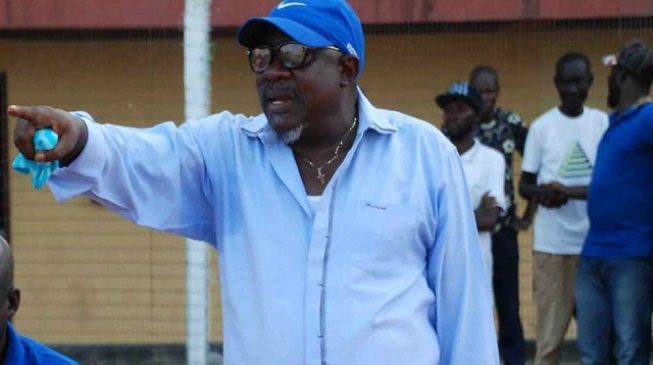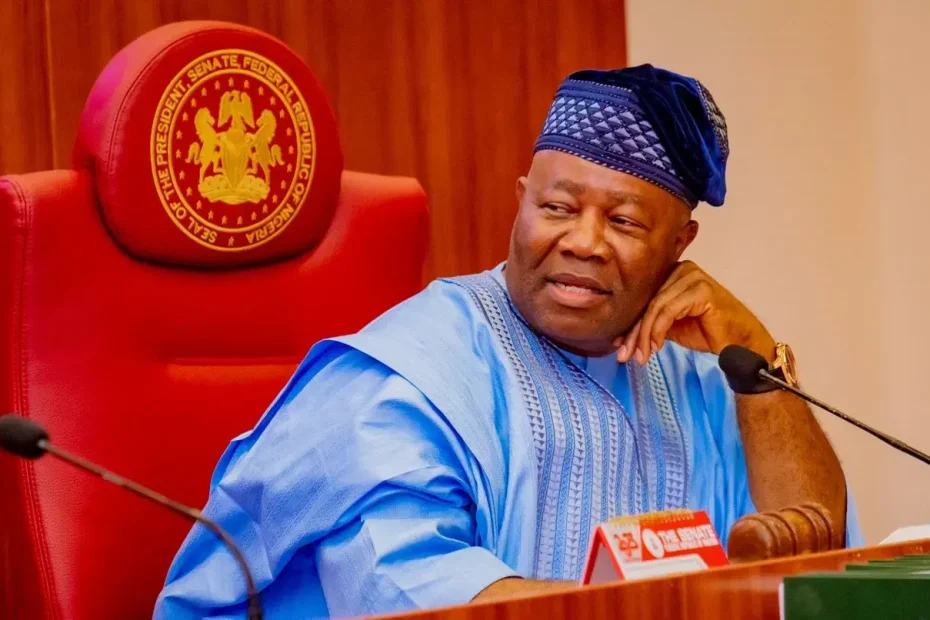Headlines
Lobi Stars Coach, Ogbeide, Slumps, Dies in Makurdi

The head coach of Lobi Stars, champions of the Nigeria Professional Football League side, Solomon Ogbeide, died in Makurdi, the Benue State capital, on Monday.
Our correspondent learnt that the veteran coach died as a result of Low Blood Pressure, which he had reportedly complained about before his death.
“So sad, coach Ogbeide slumped this (Monday) morning and was rushed by Lobi officials to a private hospital in Makurdi, where he died at 2:15pm,” a source close to Ogbeide told our correspondent.
Despite Ogbeide’s demise, Lobi went on to host Wikki Tourist of Bauchi in their final Group B home match of the season, which they won 2-1 and are on the verge of clinching a super-six ticket from their group.
Vice Chairman, Lobi Stars, Mike Idoko, said, “Once I get confirmation from the family, I will officially issue a statement and make it available to the press but for now, I can’t speak further.”
Players, fans and the entire Aper Aku stadium were thrown into a mourning mood when news of the demise of Ogbeide filtered into the stadium after the NPFL clash between Lobi and Wikki.
No player or official of the club was ready to speak with journalists but fans were seen gathered and discussing the matter, as the Edo-born coach was conspicuously absent from the dugout during the encounter.
Ogbeide joined Lobi Stars in 2017 and helped the club secure the CAF Champions League ticket after Lobi were declared winners of the NPFL 2017/18 season.
He took the Makurdi side to the group stage of the CAF Champions League.
He had until his death turned around the fortunes of Lobi, who are currently second in Group A of the Nigerian Professional Football League table, with 34 points and only one match left.
The Punch
Headlines
Trump Signs Spending Bill to End Longest Government Shutdown

US President Donald Trump has signed a federal spending bill, officially ending the longest government shutdown in American history.
The legislation, passed by the House of Representatives in a 222–209 vote, followed narrow approval in the Senate just two days earlier. The bill restores funding to federal agencies after 43 days of closure, bringing relief to millions of government employees and citizens affected by halted services.
Speaking after signing the measure on Wednesday night, Trump described the deal as a political victory, asserting that Democrats unnecessarily prolonged the shutdown.
“They didn’t want to do it the easy way. They had to do it the hard way, and they look very bad,” he said.
The temporary funding bill maintains government operations only through 30 January, creating a new deadline for lawmakers to negotiate a long-term budget solution.
As part of the agreement, Senate leaders committed to an early December vote on Obamacare subsidies, a key priority for Democrats during the shutdown standoff.
In addition to reopening federal offices, the bill provides full-year funding for the Department of Agriculture, military construction projects, and several legislative branch offices.
It also ensures retroactive pay for federal workers affected by the shutdown and allocates funding to the Supplemental Nutrition Assistance Program, SNAP, which helps about one in eight Americans access food.
The shutdown, which began in October, forced the suspension of many government services, leaving an estimated 1.4 million federal employees either furloughed or working without pay. It also disrupted food assistance programmes and caused widespread delays in domestic air travel.
With federal operations now resumed, attention in Washington has turned to whether Congress and the White House can reach a longer-term funding agreement before the new deadline at the end of January.
Headlines
FG Halts Planned 15% Import Duty on Diesel, Petrol

The Nigerian Midstream and Downstream Petroleum Regulatory Authority (NMDPRA), on Thursday, announced discontinuation of the planned 15 per cent duty on imported petroleum products.
NMDPRA’s Director, Public Affairs Department, George Ene-Ita, conveyed the development in a statement while warning the public to shun panic buying.
President Bola Tinubu, on October 29, approved an import tariff on petrol and diesel, a policy expected to raise the landing cost of imported fuel.
The President’s approval was conveyed in a letter signed by his Private Secretary, Damilotun Aderemi, following a proposal submitted by the Executive Chairman of the Federal Inland Revenue Service, Zacch Adedeji.
The proposal sought the application of a 15 per cent duty on the cost, insurance, and freight value of imported petrol and diesel to align import costs with domestic market realities.
Implementation was slated to take effect on November 21, 2025.
The policy aimed to protect and promote local refineries like the Dangote Refinery and modular plants by making imported fuel more expensive.
While intended to boost local production, it is also expected to increase fuel costs, which could lead to higher inflation and transportation prices for consumers.
Experts have argued that the move could translate into higher pump prices for consumers, with some estimating an increase of up to N150 per litre or more.
In an update, however, NMDPRA said the government was no longer considering going ahead with implementing the petrol import duty.
“It should also be noted that the implementation of the 15% ad-valorem import duty on imported Premium Motor Spirit and Diesel is no longer in View,” the statement read in part.
Meanwhile, the NMDPRA also assured all that there is an adequate supply of petroleum products in the country, within the acceptable national sufficiency threshold, during this peak demand period.
“There is a robust domestic supply of petroleum products (AGO, PMS, LPG, etc) sourced from both local refineries and importation to ensure timely replenishment of stocks at storage depots and retail stations during this period.
“The Authority wishes to use this opportunity to advise against any hoarding, panic buying or non-market reflective escalation of prices of petroleum products.
“The Authority will continue to closely monitor the supply situation and take appropriate regulatory measures to prevent disruption of supply and distribution of petroleum products across the country, especially during this peak demand period.
“While appreciating the continued efforts of all stakeholders in the midstream and downstream value chain in ensuring a smooth and uninterrupted supply and distribution, the public is hereby assured of NMDPRA’s commitment to guarantee energy security,” the statement added.
Headlines
Senate Approves Tinubu’s N1.15tr Domestic Loan Request to Fund 2025 Budget Deficit

The Senate has approved President Bola Tinubu’s request to raise N1.15 trillion from the domestic debt market to cover the unfunded portion of the 2025 budget deficit.
The approval followed the adoption of a report by the Senate Committee on Local and Foreign Debt during plenary on Wednesday.
The committee noted that the 2025 Appropriation Act provides for a total expenditure of N59.99 trillion, representing an increase of N5.25 trillion over the N54.74 trillion initially proposed by the Executive.
This expansion created a total budget deficit of N14.10 trillion. Of this, N12.95 trillion had already been approved for borrowing, leaving an unfunded deficit of approximately N1.15 trillion (N1,147,462,863,321).
In a related development, a motion by Senator Abdul Ningi was adopted, directing the Senate Committee on Appropriations to intensify its oversight to ensure that the borrowed funds are properly implemented in the 2025 fiscal year and used strictly for their intended purposes.
President Tinubu had on November 4th requested the approval of the National Assembly for a fresh ₦1.15 trillion borrowing from the domestic debt market to help finance the deficit in the 2025 budget.
The President’s request was conveyed in a letter. According to the letter, the proposed borrowing is intended to bridge the funding gap and ensure full implementation of government programs and projects under the 2025 fiscal plan.






